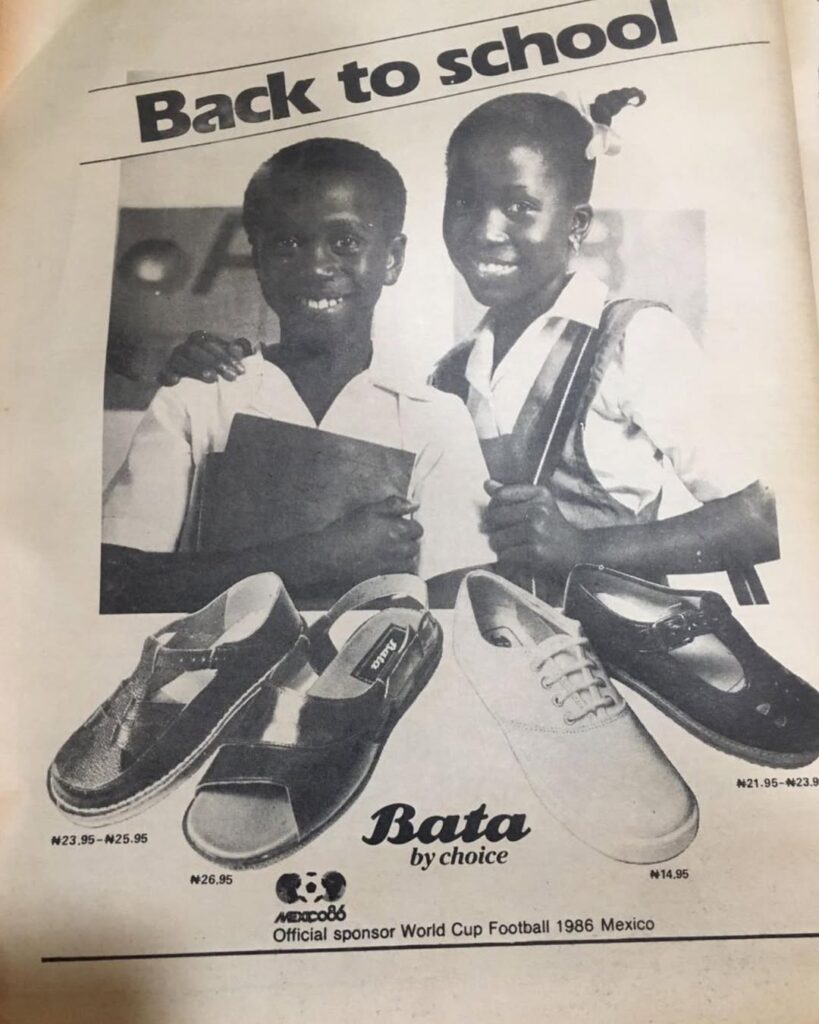In 2004, when then-Finance Minister Ngozi Okonjo-Iweala invited World Bank President James Wolfensohn to tour Aba, they witnessed something extraordinary: shoemakers, clothiers and manufacturers demonstrating the kind of indigenous innovation that could power an economy. Yet their potential was strangled by unreliable electricity. That visit set in motion a 20-year journey that culminated in the Aba Power Plant’s completion in February 2024.
Now, twenty-one years later, another ambitious partnership is brewing. Governor Alex Otti is in strategic talks with Yikodeen Company Limited, West Africa’s largest safety footwear manufacturer, to establish a 10,000-pair-per-day factory in Aba. The question is: Can the same persistence that finally brought light to Aba now save its struggling shoe industry?

The Scale of Aba’s Shoe Industry Crisis and Opportunity
The numbers from 2022 report by PWC tell a story of immense potential hobbled by systemic constraints. Researchers estimated Aba’s shoe industry at N144 billion ($350.4 million at 2022 exchange rates). This estimate is based on production of one million shoes weekly and 48 million pairs annually at an average price of N3,000 per pair. The industry comprised more than 100,000 entrepreneurs across 14 clusters, with half of production exported to West and Central Africa, Europe and the Americas.
Yet despite this scale, Aba supplied only 0.00128% of the $271.82 billion global shoe market in 2022. More troublingly, while Nigeria exported raw hides and skins worth N36.161 billion in the third quarter of 2021, it imported shoes and leather products valued at N83.521 billion, a figure that is nearly 2.3 times its exports.
By 2025, with severe naira devaluation, these dynamics have intensified. The Nigerian footwear market reached $2.1 billion in 2024 and is projected to hit $2.6 billion by 2029, according to Statista. The safety footwear segment alone is valued at $700 million. Yet Aba’s shoemakers remain largely unable to capture this growth, still trapped by the same constraints that plagued them in 2022: inadequate equipment, poor infrastructure, limited access to capital and disorganized market structures.
All the Things Holding Aba Back
The 2022 report revealed an industry crippled by crude tools and outdated production methods. The report cited Ken Anyanwu, secretary of the Association of Leather and Allied Industrialists of Nigeria, as estimating that Aba could produce 1,000 to 5,000 pairs monthly. It however, needed 53 imported items for each pair, with shoemakers accessing only 5 to 10% of their foreign exchange requirements. A locally-fabricated sole-smoothing machine took 20-30 minutes per pair; a Chinese or Indian machine could process 1,000 pairs in under five minutes but cost over $3,000.
The report also quoted shoemaker Jane Nwokeji, who admitted her production was one-third below capacity due to equipment limitations. The suitable sewing machines for shoes sold between $250 and $1,800 on Alibaba, far beyond the reach of micro-enterprises using standard N40,000-N60,000 Nigerian sewing machines.
Infrastructure compound these challenges. Despite the 2019 commissioning of the Ariaria Market Independent Power Plant by Vice President Yemi Osinbajo, shoemakers, the real industrialists here, remained disconnected. They continued running diesel generators at N8,000 or more per day. Roads leading to the 14 cluster zones were potholed and poorly maintained, with one Cameroonian customer abandoning Aba entirely due to logistics difficulties.
The Bank of Industry had provided just N300,000 to 21 shoemakers in 2011, a figure that is insufficient for equipment financing and nothing since. Most shoemakers operated without Corporate Affairs Commission registration or business plans and this made them invisible to serious investors.

The Inspiration for Geometric Power
It’s worth remembering that Aba’s shoe industry directly inspired the power plant that finally came online in 2024. Professor Barth Nnaji’s “enthusiastic acceptance” of Okonjo-Iweala and Wolfensohn’s request to set up a power plant in Aba, stemmed from recognition that “Aba has a special place in the heart and mind of every person interested in our country’s rapid progress. It is the home of indigenous manufacturing, innovation and entrepreneurship.”
Nnaji knew the cost of inadequate power firsthand. In the 1990s, he had abandoned plans to build a vehicle parts plant in Emene, Enugu, after South Korean partners balked at the region’s unreliable electricity supply. The Aba project became his redemption arc, and Aba’s shoemakers would be the beneficiaries.
But the journey was brutal. A 20-year ordeal of legal battles, political interference from Vice President Namadi Sambo and businessman Emeka Offor, bureaucratic ineptitude, and $3.5 million monthly interest payments on $500 million in borrowed funds. Yet Nnaji persisted. When the plant finally fired up on February 25, 2024, Aba residents experienced 14 hours of daily power, and Governor Otti promised that “power outage will be the exception rather than the rule.”
The plant now delivers 141 MW across nine of Abia’s 17 local government areas. Nnaji envisions over 370,000 jobs and an industrial boom for “the Japan of Africa.”
How Yikodeen Can Make the Difference
While Aba’s shoemakers struggled with crude tools and disorganization, another Nigerian footwear manufacturer was quietly building something remarkable. Yikodeen Company Limited started in 2016 producing 20 pairs of safety boots daily. By 2025, it manufactures 500 pairs per day.
In May 2025, Yikodeen secured $1.5 million from Aruwa Capital Management to expand operations. Founder and CEO Shamsideen Atunde described it as “a vote of confidence in the company’s manufacturing excellence.” The investment will recommission Yikodeen’s factory and boost output tenfold to 2,500 pairs daily by the third quarter of 2025.
What makes Yikodeen different? Certifications, structure, and strategic positioning. It’s the only manufacturer certified by the Nigerian Content Development and Monitoring Board to supply safety boots to Nigeria’s oil and gas industry. It has supplied over 30,000 pairs to the NLNG Train 7 project and holds ISO 9001:2015 certification. The company has achieved over 10x revenue growth with gross profit margins exceeding 50 percent, all without debt.
Yikodeen’s recently recommissioned Lagos factory, Factory 2.0, is the largest in Sub-Saharan Africa with 2,500 pairs daily capacity. It features automated quality assurance systems, advanced European machinery and employs over 350 Nigerians. Sixty-one percent of factory workers are women, with women holding 33 percent of senior roles.
By investing in systems, certifications and formal business structures, Yikodeen made itself investment-ready, something most Aba shoemakers have yet to achieve.

The Governor’s Gambit
In July 2025, Governor Alex Otti hosted Atunde at his country home for discussions about establishing a 10,000-pair-per-day facility in Aba. The proposed factory would form the Eastern anchor of Yikodeen’s national expansion plan to reach 20,000 pairs daily total capacity.
Atunde was moved by what he witnessed. “Abia’s transformation is undeniable. The Governor’s compassion, clarity of vision, and commitment to local development truly moved me,” he said. “Aba has long been the heartbeat of Nigeria’s indigenous footwear craftsmanship. By marrying this legacy with Yikodeen’s technology, standards and global distribution network, we can elevate Aba into a true global industrial hub.”
The proposed facility would produce industrial safety boots, military and paramilitary footwear, school sandals and slippers. It would include training spaces to upskill over 2,500 local artisans annually and connect directly to Yikodeen’s export pipeline. The potential socio-economic impact could be astounding. It could add 2,500 direct jobs, 2,000 indirect jobs, over $20 million in economic activity within two years. And could also increase the use of local leather, rubber and packaging.
Can Persistence Pay Off Again?
The parallel is striking. Just as Geometric Power required two decades of legal battles, financial bleeding, and political warfare before delivering reliable electricity to Aba, transforming the shoe industry will demand similar resolve.
However, the ingredients for success are better aligned now than in 2022. Aba has power now, the fundamental constraint that crippled manufacturing for decades. Governor Otti has also demonstrated both vision and immense execution capability that is transforming Abia State. Yikodeen brings proven manufacturing excellence, international certifications, export networks and investor confidence.
Yet significant challenges remain. Will Yikodeen’s structured, technology-driven model integrate successfully with Aba’s decentralized network of 100,000-plus entrepreneurs? Can the thousands of micro-enterprises benefit from proximity to a large, formal factory, or will the two systems operate in parallel? Will the partnership include programs to help existing Aba shoemakers formalize their businesses, access equipment financing, and achieve certifications?
Aba’s shoe industry cannot afford another two decades. With the naira’s severe devaluation making imported footwear increasingly expensive, the window of opportunity for import substitution is wider than ever. The $2.6 billion domestic market projected by 2029 represents enormous potential. If Governor Otti and Yikodeen can move swiftly, if they learn from Geometric’s painful journey by anticipating political obstacles and building broad coalitions, and if they create pathways for existing Aba shoemakers to upgrade and formalize, then lightning might indeed strike twice.
Professor Nnaji’s vision of Aba as “the Japan of Africa” remains within reach, if the same persistence that lit the city can now save its soul.












